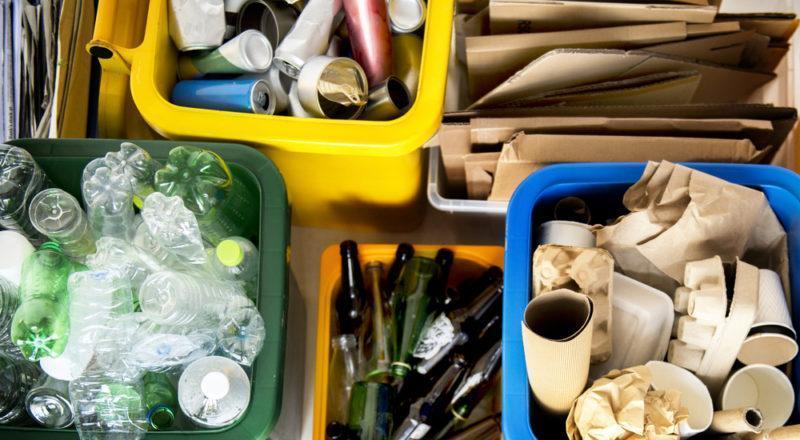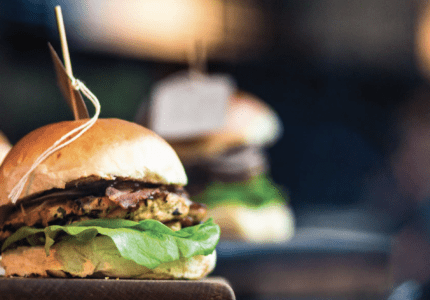Sustainability is one of our top priorities!
We are working with all Proof of the Pudding locations and departments to help reduce their environmental footprint, reduce waste, and encourage healthy eating choices. As part of this initiative, we are moving towards zero landfill waste from our events and are implement the following action items: “no styrofoam” policy
- Sustainable food
- Designation on menu
- Phasing out straws
Our Culinary and Sales team centers on fresh farm-to plate, fruits and vegetables, sustainable seafood and natural organic meats. We partner with purveyors to use locally-sourced, organic, and sustainable products. Our organization contributes to increasing our efficiency and reducing our impact on the environment, in ways both big and small.
We work with clients that share our passion and have helped us improve our sustainability practices over the years. At the Informa US Boat Shows, we only use compostable materials in our food service operation. At the AT&T Byron Nelson, we are working with Blue Strike Environmental to create a sustainability plan for our food service operation at the tournament, with a first-year goal of diverting 90% of our waste from landfills.
Our sustainability plan starts with our vendors. We buy local as much as possible, with a goal of 80% of fresh food items coming from local vendors. We monitor this through self-audits throughout the year. We take weekly invoices and check for purchases from local vendors and compare them to total purchases.

How we keep it green
Food Innovation
- Locally sourced, organic foods
- Fostering relationships with local farmers
- Sustainable menu design
- Preventive waste measures, production programs to ‘cook less’ company-wide
- Green-friendly eco & bare compostable products
- Bamboo, sugar cane, etc
Green Facilities
- Single stream recycling
- Motion-activated office lights
- Low-flow restroom facilities & kitchen spray hoses valves
- Pre-wash recycling efforts
- Energy-saving cooking and HVAC systems
- Web-based energy saving thermostats
- Pre-preemptive conservation efforts with our overall carbon footprint
Employee & Community Involvement
- Providing food to the Atlanta Community Food Bank, Atlanta Mission, Our Lady of Perpetual Hope, Atlanta Battered Woman’s Shelter, Local Churches and more regionally
- Donate more than 2000+ pounds with Collegiate Stadium Efforts & Overall Operations
- Non-For-Profit (NFP) Partnership/Volunteer Programs
- Chef’s garden grown on-premise at corporate office
- Honeybee sanctuary on-premise at corporate office where they serve as a valuable environmental and educational resource
- Paperless Onboarding
Product Sourcing Approach
Product quality and local sourcing are at the heart of all of Proof of the Pudding’s menus. We create menus seasonally to use the ingredients at the peak of their flavor. We work with local, sustainably sourced programs to assist us in sourcing, indigenous ingredients. We define local as products available within 200 miles of the city of Raleigh for spring, summer and fall.
In the winter months, we define local as 500 miles; this distance allows us to purchase products from Florida, since most of the southeastern states have a limited growing season. The states included in our local definition are North Carolina, South Carolina, Florida, Georgia, Tennessee and Kentucky. Our overall goal is to supply 60% of all fresh ingredients from a local source, with this percentage being greater in the spring, summer, fall months than in the winter.

The Next Phase of our Sustainability Plan is to Recover as Much Food as Possible
We will implement food recovery as follows:
- Reduce the volume of surplus food. There are many parts to this. First is using detailed recipes and ordering practices. Second is using proper portioning controls on all items to ensure the prepped amount of food is being used. Third is tracking waste. We track how much left-over product we have from each event or service period from each food station concept. These logs help us to create accurate food preparation numbers moving forward and reduce the amount of excess food. The tracking log allows us to show measurable data on our amount of over-produced food.
- Any surplus food that cannot be reused in-house for team meals, soups/stews, stocks and sauces are donated to local shelters and food banks. We partner with The Food Recovery Network to reuse any left-over product to feed those in need.
- We work with our clients to create a program to divert at least 90% of our food waste from landfills.
Additional Sustainability Practices
- Our no Styrofoam policy prohibits the use of Styrofoam packaging or service ware with any food delivery or at any of our events/venues. We only use compostable materials for all of our disposable service ware. All locations are required to comply with this policy.
- Sustainability food designation on menus is designed to support our commitment to sustainable and local food procurement.
- Thawing foods under refrigeration and not running water. We can track water usage by using our monthly water bills and looking at usage from month to month.
- Using Earth-Friendly chemicals throughout the operation and buying products with little to no plastic packaging. Using concentrated products helps use less packaging as well.
- Working with local recycling organizations to develop a recycling plan. They provide information on the amount of recycled product
leaving the operation. They can provide weekly and monthly reports to show the effectiveness of our recycling program. - Limiting the number of products in glass containers in our operation, as the City of Atlanta does not recycle glass products. This is audited through our inventory process.
- Conserving energy by ensuring that the power and gas are off during non-service hours. Energy usage can be compared on a monthly basis with data from billing and meters.
- Working with our suppliers to gather information on their sustainability practices to show their environmental impact of the sustainable practices they have in place.
- Collaborating with our beverage vendors to ensure that all product is shipped with minimal packaging, including no plastic 6-pack rings.
 by Dina Biondo in Uncategorized
by Dina Biondo in Uncategorized 








